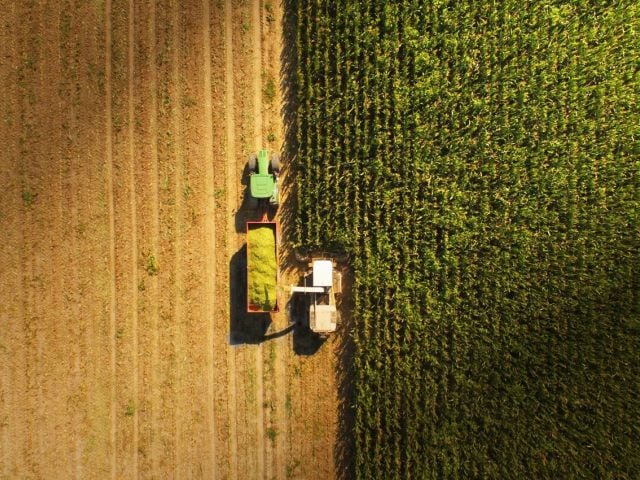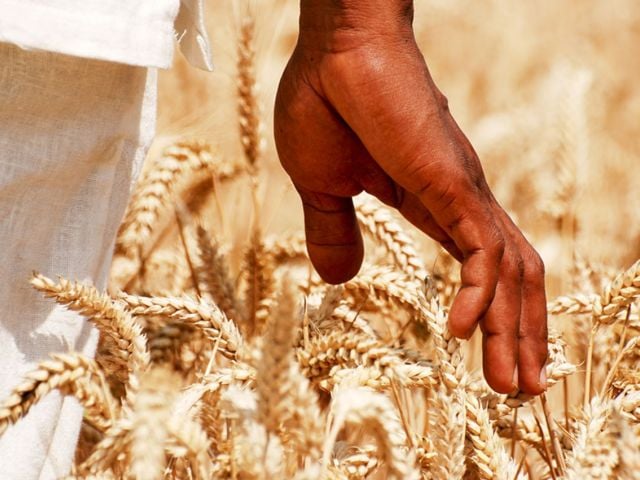
There’s plenty to dislike about the farm bill proposal the House Agriculture Committee will consider this week, including its Department of Agriculture funding cuts and problematic provisions that would weaken environmental and other safeguards.
The Farm, Food and National Security Act was developed by committee Chairman Glenn “GT” Thompson (R-Pa.) and has disastrous proposals affecting a wide range of issues including farm subsidies, conservation spending, Supplemental Nutrition Assistance Program benefits, or SNAP, better known as food stamps, and more. Here are 12 reasons for panel members to vote against it:
-
Cuts SNAP funding. Thompson’s proposal would hamstring the USDA’s ability to increase SNAP benefits and divert $30 billion in funding that would otherwise be used to feed hungry people. More than one in eight Americans – 41 million – rely on SNAP to put food on the table.
-
Privatizes SNAP. Thompson’s proposal to outsource SNAP administration to the private sector ignores previous similar attempts by states, which led to years of administrative chaos, losses in benefits for the needy and bureaucratic hurdles.
-
Postpones conservation spending. The bill would delay urgently needed spending for popular USDA conservation programs, such as the Environmental Quality Incentives Program, the Conservation Stewardship Program, and the Regional Conservation Partnership Program by at least $4 billion over the five-year period covered by the next farm bill. That’s despite growing backlogs of farmers seeking funding for proven conservation practices, such as planting cover crops.
-
Creates conservation loopholes. The proposal would also generate new loopholes to subsidize equipment purchases by farmers for “precision agriculture,” diverting funds from proven practices such as cover crops.
Thompson’s proposal vastly expands the definition of “precision agriculture” to justify spending more on costly practices. Precision agriculture enhancements already received the most funding – more than $220 million – of all Conservation Stewardship Program enhancements between 2018 and 2023.
-
Removes climate guardrails. It would eliminate guardrails included in the Inflation Reduction Act that ensure farmers seeking help to reduce greenhouse gas emissions have access to USDA funding. The bill would also undermine the carbon sequestration potential of the Conservation Reserve Program.
-
Blocks state animal welfare laws. The bill would quash state efforts to set standards that ensure humane treatment of farm animals.
-
Prevents state and local pesticide laws. It would also block passage of state and local pesticide laws, including state laws designed to protect schoolchildren from exposure to toxic pesticides.
-
Increases subsidies for large, Southern farmers. The proposal would divert anti-hunger funds to dramatically increase subsidies for a handful of large peanut, rice and cotton farmers, primarily in Southern states. Raising these subsidies will drive up the cost of renting and buying lands, further tilting the playing fields against family farmers, Black farmers and young farmers.
-
Increases subsidies for crop insurance, especially agents and companies. The bill proposes to raise subsidies for crop insurance, especially for crop insurance agents and companies. Fewer than one in five farmers – or 20 percent – can afford to participate in the crop insurance programs.
-
Enlarges the federal deficit. While the Congressional Budget Office has not produced a cost estimate for the bill, it would likely add tens of billions of dollars to the federal deficit to provide more money to large, Southern farms – even after $30 billion in SNAP cuts.
-
Undermines school food standards. The proposal would set the stage for an end run around the process for setting standards for school meals. It would also handicap the evidence-based approach to setting the Dietary Guidelines for Americans.
-
Weakens environmental safeguards. If enacted, the bill would threaten bedrock environmental laws, including the National Environmental Policy Act and the Endangered Species Act.
There are many other reasons to oppose Thompson’s proposal, including his failure to boost funding for programs that help farmers build local markets.
But perhaps the most compelling reason – other than cuts to SNAP and conservation programs – is that the proposal departs from the usual bipartisan process that has long been a feature of the farm bill. Instead, for the first time, the proposal would move money from one part of the farm bill to pay for another part.
People outside the Beltway know that partisan solutions are not durable solutions, and that it’s never wise to rob Peter to pay Paul.



